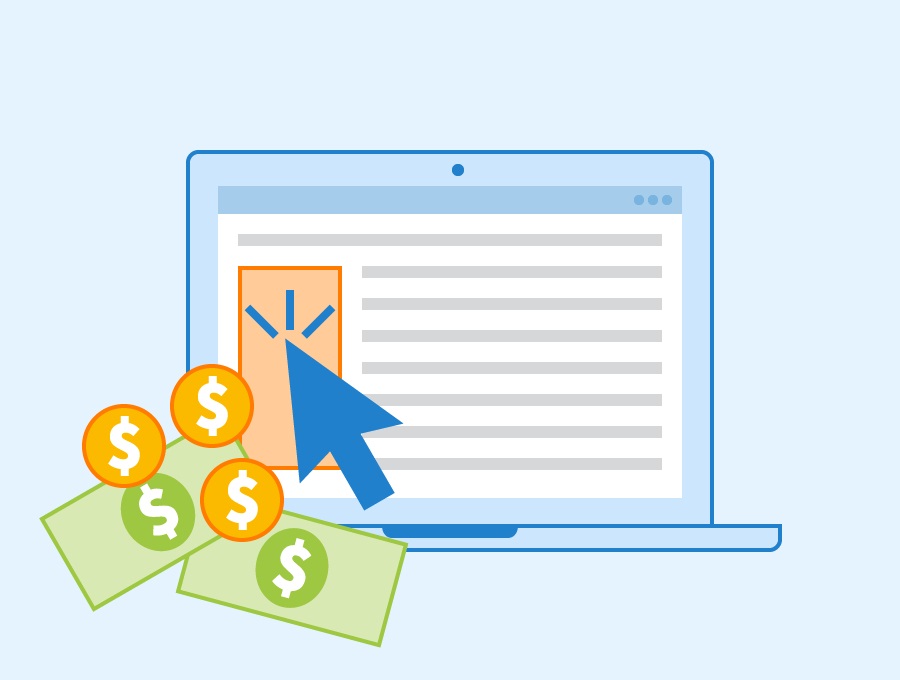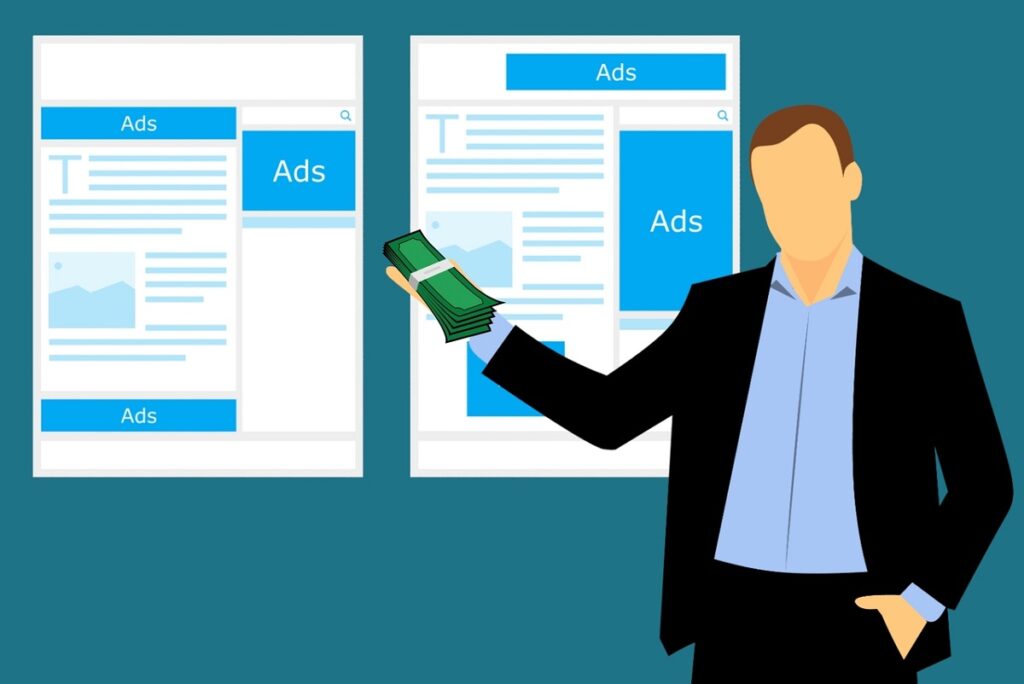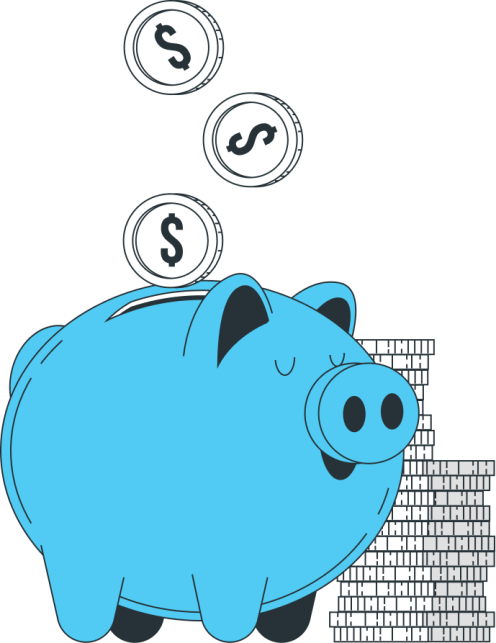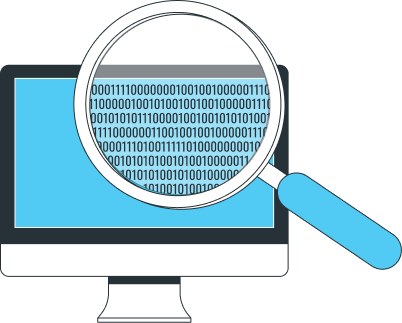It’s a fact: The Digital marketing ecosystem is as rich as it is complex. To navigate its intricacies with any amount of success, one needs to master what can only be described as “marketing language”, or the expressions that refer to the levers and mechanisms essential to most advertisers. You might have already come across one of these phrases, Cost Per Click – CPC – in the context of online advertising. The notion is crucial to anyone hoping to build a relevant search engine marketing strategy and optimize their campaign. What is CPC, exactly? How does it apply to you? Here’s what you should know.

What is CPC, or Cost Per Click?
What is Cost Per Click, exactly? You might already have heard of its equivalent, Pay Per Click (PPC). It’s a term used in marketing to describe a billing method applied by some advertising platforms. The principle is straightforward. The advertiser goes through an advertising platform in order to position their ads on the web, in certain key locations. Each time a user clicks on one of the ads, the advertiser pays a predetermined amount of money to the publisher. The ads themselves come in a variety of shapes (Google Ads sponsored links, banner ads, social media Ads, etc.), but the overall concept is generally the same.
CPC marketing can be based on a bidding system or rely on a set price. For example, when purchasing keywords for positioning purposes with Google Ads (that will show up on the Google search network or on the Display network), the highest bidder (or advertiser, in this case) “wins” the keyword in question. That is to say they are allowed to use the term in their ads. Still, bids can continue to affect the cost of the keyword, including during the campaign. On “traditional” advertising spaces, however, the CPC applied for the purchase of ad space is set at the beginning of the campaign and doesn’t fluctuate after it has launched.
This implies that the Cost Per Click has a direct impact on the overall cost of a web ad campaign, and therefore on its profitability. That’s why CPC is an extremely important factor to consider in your advertising strategies. All the more so when CPC bidding is involved, you need to activate the right levers if you want to get the most out of every click for your target keywords, and maximum budget you can allocate to your campaign.

What Types of Ads Are Involved in CPC?
CPC is equivalent to renting ad space through a host/publisher and paying each time someone clicks on the ad. Many advertisers resort to this payment method for their paid acquisition campaigns. For example, CPC is prevalent for:
- Sponsored links (text ads)
- Ads on social media (Facebook Ads, Twitter, Instagram, LinkedIn…)
- Image ads
- Shopping ads on Google
- Video ads
With that said, Cost Per Click is not the only billing method available in the current digital advertising ecosystem. CPC can be substituted for CPM, or “Cost Per Mille” (i.e. cost per thousand, where the advertiser pays every time their ad has been displayed a thousand times), CPV, or “Cost Per View” (i.e. the advertiser pays every time the ad has been viewed), or CPA, “Cost Per Acquisition” (i.e. the advertiser pays whenever the users perform a specific, predefined action). Yet Cost Per Click remains one of the most widely used solutions because of its many benefits.
Why Is Cost Per Click an Important Indicator for Paid Digital Strategies?
These very benefits make CPC marketing a performance lever in the context of web advertising campaigns. Measuring Cost Per Click allows you to…
- Generate more traffic (as CPC ads are displayed on channels with high numbers of targeted users, which mechanically increases the visibility of your ads).
- Pay only when a user clicks on your ad and makes it to your website or landing page. In other words, you pay based on how much traffic is actually being generated.
- Improve your ad campaigns by comparing costs with revenue once you have access to your actual CPC.
- Drive your campaigns by reallocating your ad budget to the ads that show the best results.
- Automating your CPC bidding strategies to focus on what you do best (you then let the publisher drive your campaigns for you, knowing that they will operate within the limits of your budgetary constraints to optimize your strategy).
- Maximize your ad campaigns by making sure that every click is relevant and translates into the action you want.
- Monitor your ad ROI, taking multiple indicators into account (such as your customer acquisition cost) and optimizing your expenses (by setting a maximum CPC for instance).

How to Optimize your Cost Per Click?
CPC doesn’t depend on the advertiser. It derives from an array of factors which include keyword competitiveness, ad ranking (which itself considers quality, landing page experience, relevance, expected click-through rate (CTR), top bid, search context, etc.), as well as the ad placement (the actual cost per click of a link displayed above the organic search results in the SERP is thus higher than that of a link placed below). All that happens on the publisher’s end.
Still, as an advertiser, you do have several CPC levers at your disposal to optimize your campaigns. Such is the case when advertising with Google Ads, for example, where you can opt for the average, max, actual, or enhanced cost per click.
- Average CPC refers to the average amount it costs to generate a click on an ad. This indicator fluctuates along with the bids, which change over the course of the campaign. To calculate it, you need to divide the overall CPC by the number of clicks. However, as ad rankings change often, there is no fixed cost per click.
- Max CPC refers to the highest amount you’re willing to pay during the campaign. It’s the highest amount the advertiser can be charged for a click. Which doesn’t necessarily mean that this maximum will be reached. If it’s not, you’ll pay less. You can set the Max CPC manually yourself or have the publisher’s algorithm set it automatically if you’ve decided to rely on an automated bidding strategy.
- Actual CPC is set by the publisher at the end of the campaign and refers to the end price that the advertiser paid for each click. It is usually lower than the Max CPC.
- Enhanced CPC refers to the automatized strategies that some publishers offer for Cost Per Click advertising campaigns. This lever allows you to maximize your conversion rate without going over budget.
There are other ways to optimize your Cost Per Click. It’s worth knowing that in the context of bidding, ads with the highest quality scores are often given the advantage. For example, if two advertisers are competing for the first spot among the four sponsored links in Google’s SERP, the publisher will prioritize the one with the highest rank. The advertiser in question will then pay the minimum amount required to win the bid.
What is Cost Per Click in the end? All in all, CPC marketing is also an optimization lever for your campaigns. So long as you offer relevant, quality ads that are likely to get an excellent Quality Score, you can lower your cost per click mechanically, win bids against your competitors (even if they have a larger advertising budget), and maximize the profitability of your campaigns.












